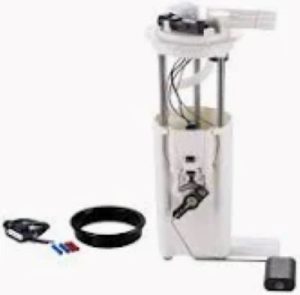Fuel pumps serve a crucial function for maintaining the proper operation of an engine and also preventing fuel contamination that could cause severe damage to your vehicle. The fuel filter is one of the essential elements in this process, which prevents dirt,gunk,rust and more. Filters usually have a degree of microns that gives you an idea on how fine is the mesh it features—aircraft fuel filters typically range between 10 and 30 micron, small enough to catch most debris while large enough not to impede normal flow. New filters minimize the load on your engine - and can enhance fuel efficiency by from 2 to five percent.
Check valves and pressure regulators on modern fuel pumps prevent any contaminants from flowing backward into the tank. Each of these designs maintain a constant fuel pressure, typically between 40-60 psi (depending on the vehicle), and work to reduce the likelihood that contaminants will circulate back through. The continual, never ending pressure ensures particles are not given a chance to settle or collect close the intake block and risk damage to the pump itself after hundreds of hours out running on abrasive sand.

The Fernsler cage is only part of the solution; CP pumps and carburetors are also a key defense against contamination. Sediment traps are common in most tanks and they catch bigger particles at the bottom before those can make their way into the fuel pump. Sediment traps offer almost no trouble if designed properly and maintained; as long with good performance cleaned, they keep an engine running for a longer time without breakdowns of both pump and filter. Some models, for example, those with properly engineered sediment traps will last over 100,00 miles.
Continued care and using only good replacement components can help tamp down on contamination even more. Most automotive authorities suggest changing fuel filters for every 30,000 to 50,000 miles in order that cleanest gas do the filtration works. If this maintenance step is ignored the filters are likely to clog up and put unnecessary strain on the fuel pump, which could cause it to overheat leading possible premature failure. In the words of automotive celebrity Lee Iacocca, “Quality is job one,” meaning quality parts and proper maintenance.
Motorists should also be aware of fuel quality as impure gasoline at sites with substandard storage tanks can add debris and water to the automobile's gas system. If in doubt, using a fuel system cleaner once every few months can remove any small deposits and keep everything working nicely. Visit Fuel Pump for the latest information about keeping a high-performance Fuel Pump.